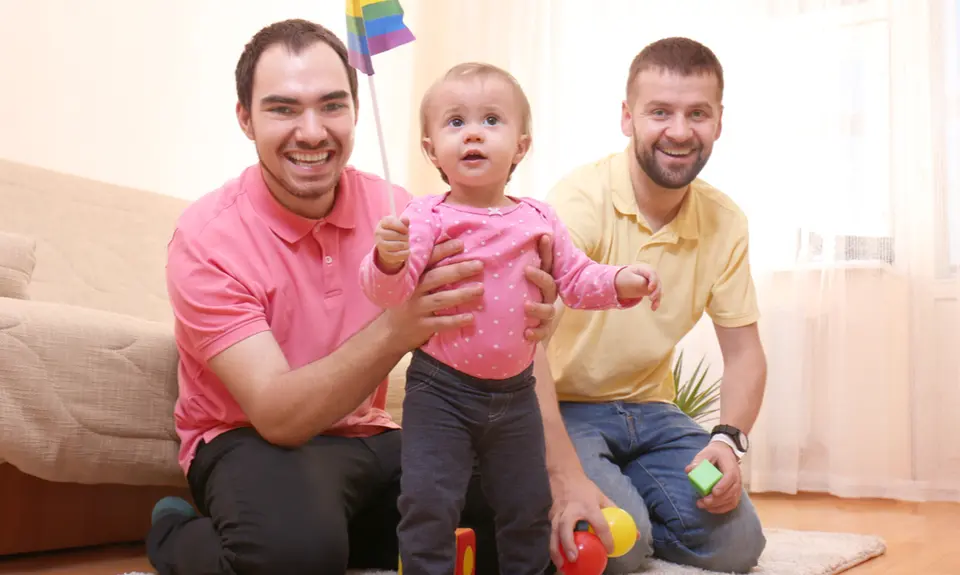By approving an amendment sponsored by Rep. Robert Aderholt, R-Ala., congressional Republicans have once again cast aside Americans' basic needs to score political points with their far-right base. This deeply troubling language in the House proposal for next year's Department of Health & Human Services funding would deny qualified people the right to parent and put children in harm's way. Effective government collaboration with faith-based child welfare providers does not require such sanctioning of taxpayer-funded discrimination. There should be no religious tests placed on the services they provide or the people they serve. Child welfare, after all, is about the welfare of children. People For the American Way and PFAW's African American Ministers In Action join national, state, and local allies who oppose the Aderholt Amendment. You can download our letter here.
Dear Senators and Representatives:
The 250 undersigned religious, child welfare, civil rights, and other organizations write to voice our strong opposition to the Aderholt Amendment to the House Labor-HHS-Education Appropriations Bill for FY 2019. We urge you to reject this provision because it would harm children in the child welfare system and authorize taxpayer-funded discrimination.
In violation of state and federal nondiscrimination policies, the Aderholt Amendment would allow child welfare providers receiving taxpayer dollars to decide which families and children to serve. The amendment would affect a wide variety of child welfare services, including family preservation services; foster care, counseling and other services for children; and adoption services.
Taxpayer dollars should not be used to discriminate and no family should be told they are not qualified to serve as foster or adoptive parents because they are LGBTQ or the “wrong” religion by a taxpayer-funded provider. This amendment would allow agencies to use a religious litmus test to determine which families or children to serve, and which services to provide, while still receiving taxpayer dollars.
Moreover, because the amendment conflicts with other federal laws including Title VI of the Civil Rights Act of 1964, which prohibits discrimination on the basis of race, color, and national origin in federally funded programs, it could open the door to discrimination against children and prospective families on the basis of race and national origin by taxpayer-funded agencies.
Children who have been separated from their birth families are entrusted to the state for care, stability, and safety. When the state contracts with child welfare service providers to serve these children, following professional standards to ensure the children’s safety, permanency, and wellbeing, the providers stand in the place of the state and have a duty to act in the best interests of each child. Yet, the Aderholt Amendment places the religious and moral beliefs of some state contractors above the needs of children in state care. This is unacceptable.
The United States has nearly 440,000 children in foster care, more than 117,000 of whom are waiting to be adopted. Yet, each year, less than half of the children waiting to be adopted find forever homes, and tens of thousands of foster youth age out of the system without finding a loving, forever family. This places them at higher risk of involvement with the criminal justice system, homelessness, unemployment, and being trafficked. For LGBTQ youth in care risk for these negative outcomes is even greater.
The Aderholt Amendment could exacerbate these challenges. Forty-six states and the District of Columbia have laws and policies that protect children and families against discrimination in the child welfare system. But under this amendment, states that enforce their own policies could be penalized and face a 15% cut of federal funding for child welfare services—a potential cumulative cut of more than $1.04 billion, further straining the system.
We value religious freedom, and the only way to protect religious freedom for all people is to ensure that taxpayer-funded agencies do not place a religious test on the services they provide or the people they serve. Moreover, we appreciate the important role religiously affiliated institutions historically have played in providing child welfare services. Effective government collaboration with faith-based groups, however, does not require the sanctioning of taxpayer-funded discrimination.
In closing, because the Aderholt Amendment undermines the principle that child welfare providers should operate in the best interests of the children in their care and because it is inconsistent with the longstanding principle that federal dollars must not be used to discriminate, we urge you to reject the Aderholt Amendment.
